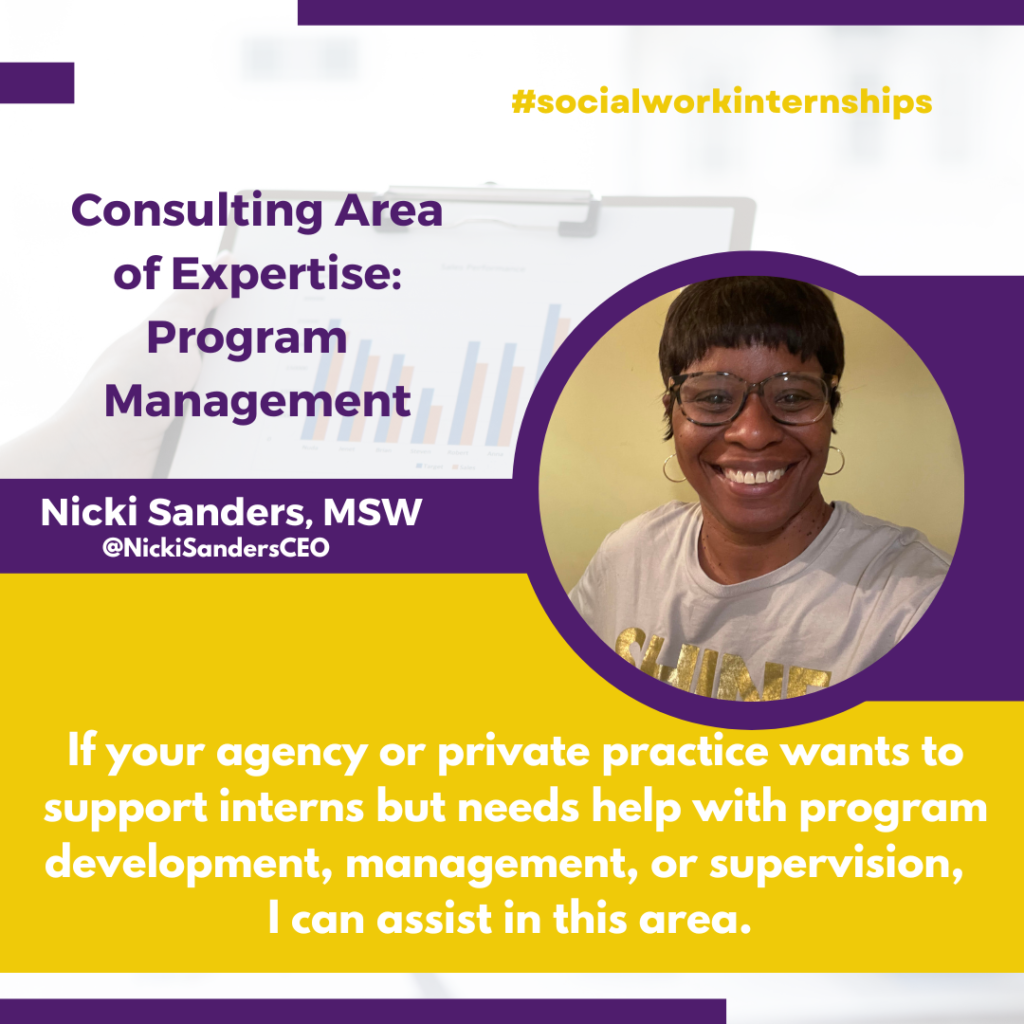An internship can be described as a work-related learning experience for persons who wish to gain hands-on experience in a certain industry or occupational field. The U.S. Department of Labor has established 7 criteria to determine whether an intern should be paid or unpaid (there is more leniency for nonprofit organizations). The Department of Labor bases its guidelines on the Fair Labor Standards Act (FLSA), and the intention is to discourage employers from treating interns as a free labor pool. An internship is a mandatory educational requirement for social work students. Although the arrangement should be mutually beneficial, I would argue that the primary immediate benefit should be to the student. When set up and managed correctly, an internship program will result in both short-term and long-term gains for the company. Outcomes from a quality internship program include fresh perspectives, a diversified talent pipeline, and increased productivity.
Too many social work interns – at the undergraduate and graduate levels – are being mistreated and misguided. Schools of social work, social work field directors, and social work internship site supervisors can share the responsibility. I stand by that statement with my whole heart. Students share it during my presentations, I receive messages in my emails and DMs, and see it when I interview new social workers as a hiring manager.
- Students are not receiving proper training, guidance, and feedback.
- Students are missing out on internship opportunities because the school or agency doesn’t have appropriate supervision available.
- Students are having their chosen placements rejected because their school prioritizes micro or clinical work.
- Students are being steered into specific areas of social work practice in which they don’t have a true interest.
- Students are given grunt work or work that is not aligned with the social work competencies.
- Students are having worked assigned to them that is above their skillset or academic level.
This semester I served as an external field supervisor for a BSW student (without financial compensation) because I wanted to support the student. I had no previous connection to the student, the university, or the agency. Now this is not something that I can do regularly, but I have zero regrets because I love being an internship supervisor. There was a period of years when my business was dedicated to internship program development and management. Given the state of social work field placements, I am bringing this fee-based consulting service back.
3 reasons to become an internship supervisor:
- You love to teach and you’re good at it
- You are committed to giving back/paying it forward
- You can provide meaningful work that matches the social work core competencies
3 reasons not to become an internship supervisor:
- You’re overworked and overwhelmed and just need someone to share the load
- Someone told you it would look great on your resume
- You simply want to be in charge and tell others what to do
If your agency or private practice wants to support interns but need help with program development, management, or supervision, I can assist with that. Schedule a free 15-minute consultation to discuss how I can best support you in developing or enhancing your internship program.
RELATED:
• Is There Really A Need for More Macro Field Placements?
• Why Should I Hire An Internship Consultant?
Nicki Sanders, MSW, supports high-performing women of color in social work leadership in developing careers that feed their hearts, minds, and wallets. As Founder and CEO of Nicki Sanders Leadership Consulting, her mission is simple – to eliminate toxic workplaces by developing skilled, empathetic, and goal-oriented leaders who have the vision, support, and resources to create a culture where business prospers, and employees thrive individually and collectively. Nicki has an extensive background in nonprofit management leading high-functioning, multi-disciplinary teams, volunteer recruitment and retention, and social impact programming. She is an accomplished professor, coach, trainer, and group facilitator who has combined her gift for authentic relationships, Master of Social Work degree, and over 20 years of diverse work experience to create a life and career aligned with her values and purpose. Nicki is a lover of cupcakes, travel, and 80’s hip hop and R&B music.
© 2023 Copyright Protected. ALL RIGHTS ARE RESERVED.
